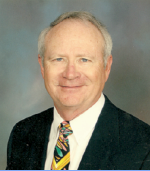The latest news reports are that the armed services are having problems meeting their recruiting goals. Why would that be and what are the implications?
While I was a professional military officer from 1970-1997, I never served as a recruiter. My understanding that the service which most often experienced recruiting shortfalls was the Army. They also are the largest of the four military services in terms of manpower. The Marines normally met their smaller goals, as did the more technical services – Navy and Air Force.
As the United States grows more populous and the size of our military becomes smaller because it is more technology-oriented (requiring less manpower), it would seem that we would have fewer problems recruiting from the larger pool of candidates. But many youths, possibly as many as three-quarters, are unqualified for today’s military service because of problems like being overweight or a drug abuse history.
And let’s not forget that everyone is having problems hiring, which is essentially what recruiting is all about. “Now hiring” is a familiar theme on billboards and yard signs outside businesses, large and small. Employers are bending over backward to offer jobs to young people. There is a lot of ‘post-pandemic hangover’ in the job market. Many have become comfortable not working, and it is hard to lure them away from the comforts of home.
There is another current factor that may be discouraging to young people seeking to join the military. Since the Biden Administration took office 18 months ago, there has been a concerted effort to “root out racism” in institutions like the military. Secretary of Defense Lloyd Austin has led this charge.
My own experience from a half century ago is that they are chasing ghosts, imagining racism where it doesn’t exist. At the age of 18, shortly after graduating from high school in 1966, I entered the United States Air Force Academy. Growing up in the segregated South, I had very little interaction with African-Americans. That changed when I got to Colorado. One of my classmates in Fourth Squadron was black, Rueben Jones, from Tennessee. He was very popular. Rueben was my friend, and I liked him. The color of his skin and mine was incidental.
I had grown up in a racist system that placed white people above blacks. Now, I had to reassess this prejudice. That fall, in American history class, one of my classmates was Harry Arnold. Harry had a year of prior-enlisted service, so he was older than me and frankly, better than me. I wasn’t jealous; instead, I wanted to be like Harry. He challenged me to be better than I would have been otherwise. I will always be indebted to classmates like Rueben and Harry, and later, Harold Bowie, from Detroit. I didn’t know George Keyes well, but he was one of three in our Class of 1970 to earn a prestigious Rhodes Scholarship to Oxford University. George was way better than me.
My point is that the military raised me above the bias I had grown up with. The Academy didn’t do it with indoctrination. It was accomplished by friendships and example. We had to support each other. We all came from different walks of life, but we were thrust together and expected to support one another. The individual faded away, and we succeeded or failed as a united class. Color of skin or ethnicity or national origin (we had some exchange students) didn’t matter. We were classmates.
Now, this was my experience more than a half century ago. We’ve made a lot of racial progress since then, right? African-American culture is much more main-stream than a half century ago. There are many more interracial marriages. Economic and educational opportunities for minorities abound. Where is all of this ‘racism’ that the DoD is looking for that didn’t exist a half century ago? I think it is largely a figment of their imagination.
The Department of Defense might also be turning young people off by indoctrinating recruits with Critical Race Theory, making the case that the United States is an inherently racist country and has been so from the beginning. I don’t buy it for a minute. I can see a wedge driven into our society to separate people. It is divisive and unhealthy. The Civil Rights Movement under the leadership of Martin Luther King, that I witnessed growing up, was to integrate our society, not to segregate it. And let us never forget that in the year of my birth 74 years ago, President Truman’s executive order to integrate the military began the transformation away from segregation.
The mission of our military is to protect the United States and our national interests. Things that get in the way and take our ‘eye off the ball’ are reflected in fewer recruits to accomplish the real mission, and the security of our nation will suffer.

